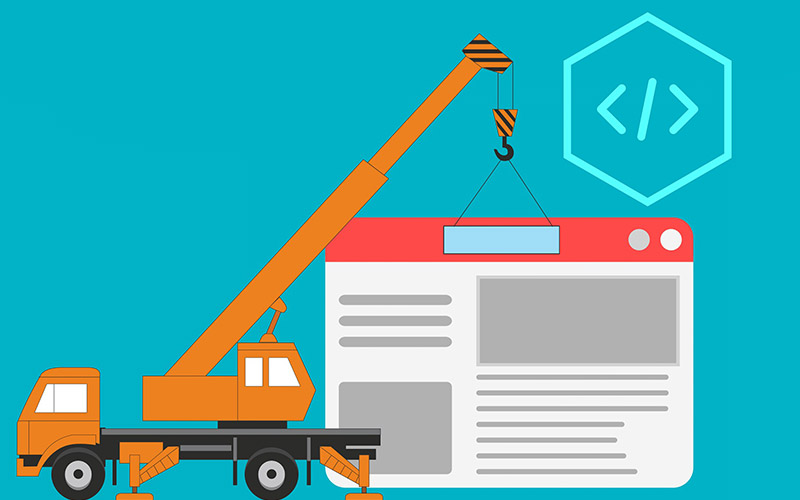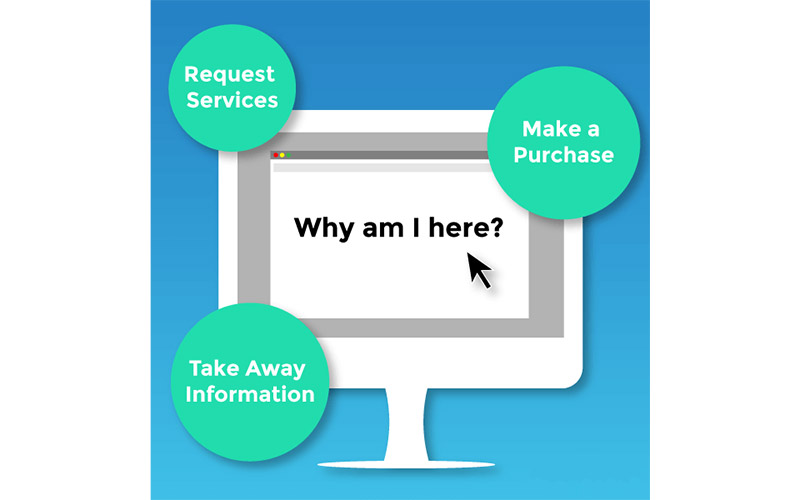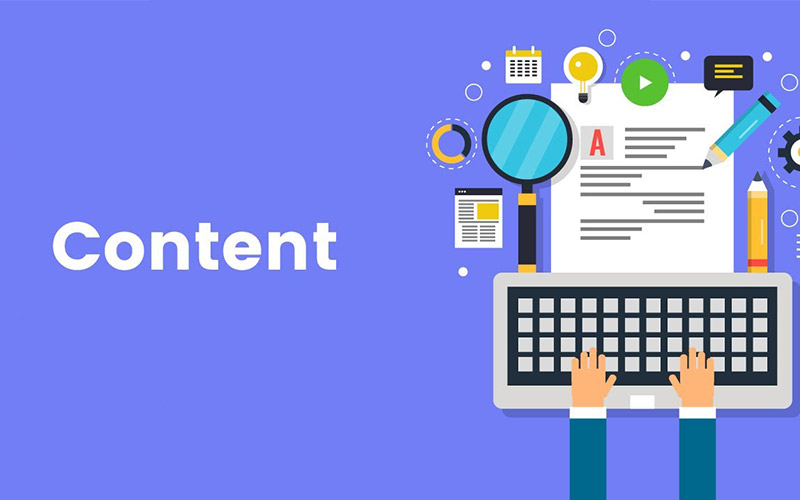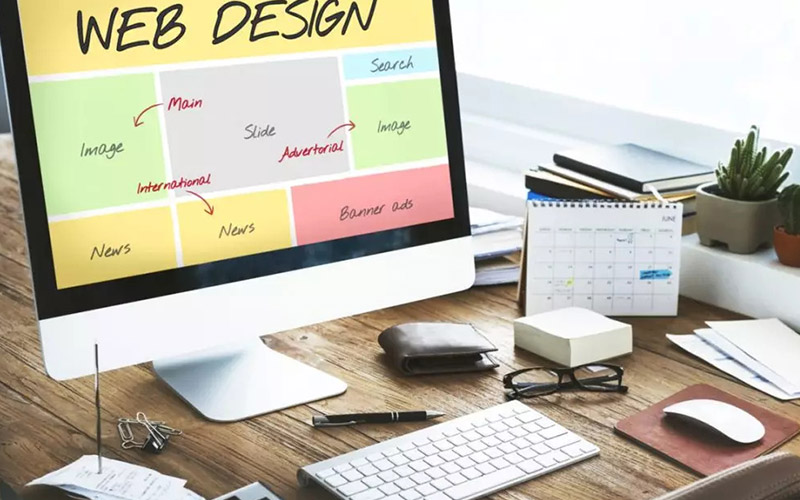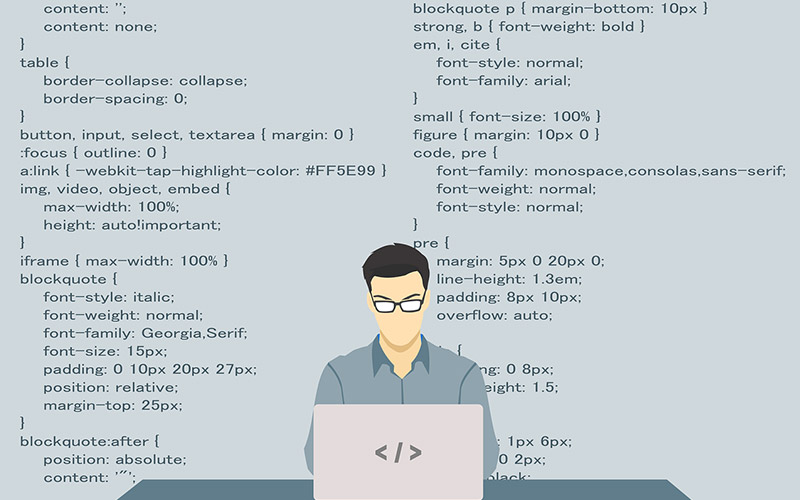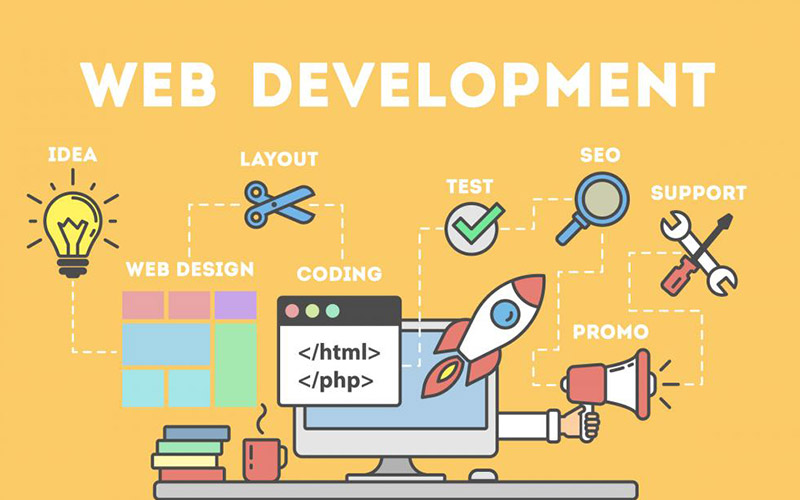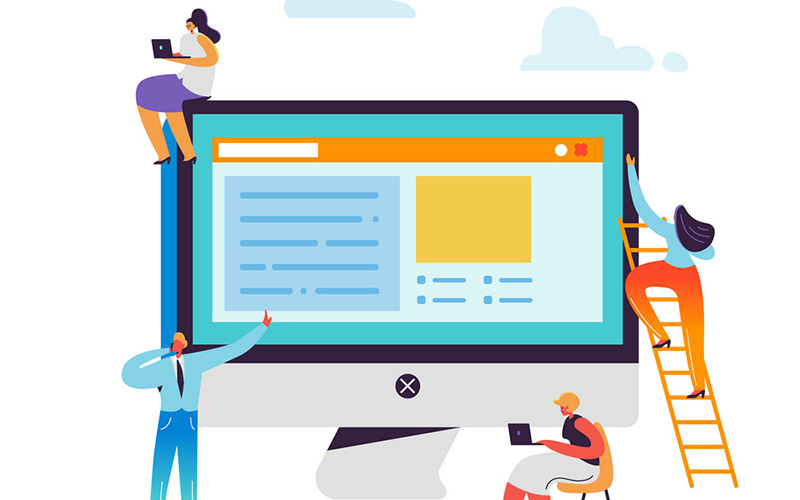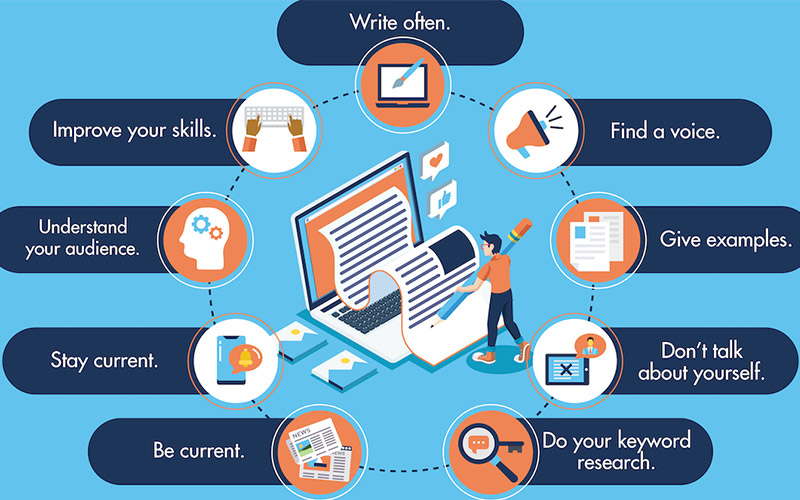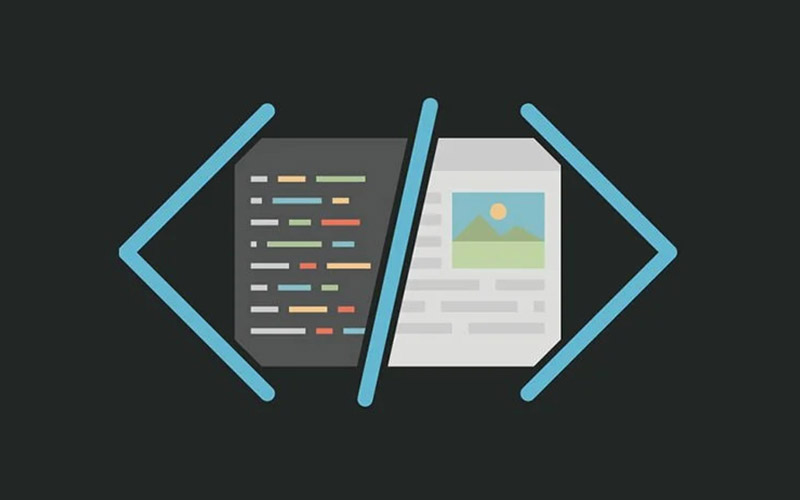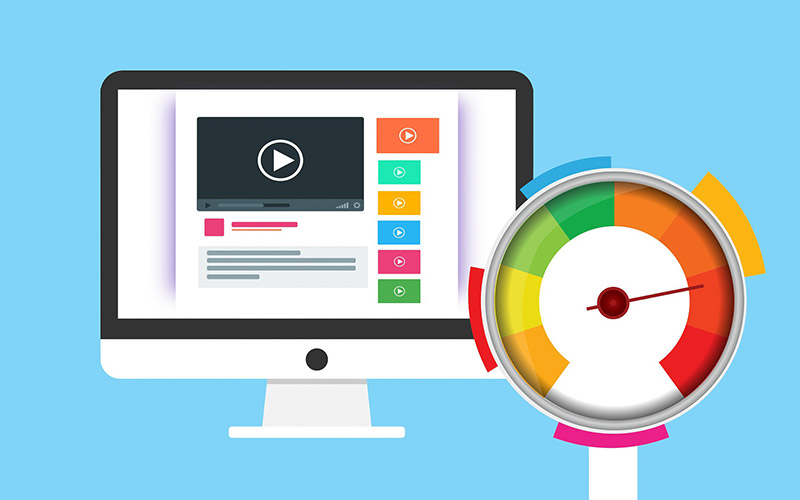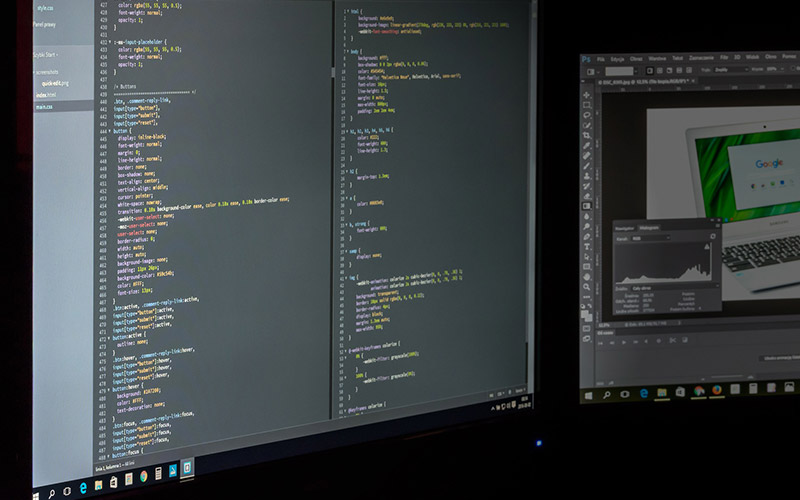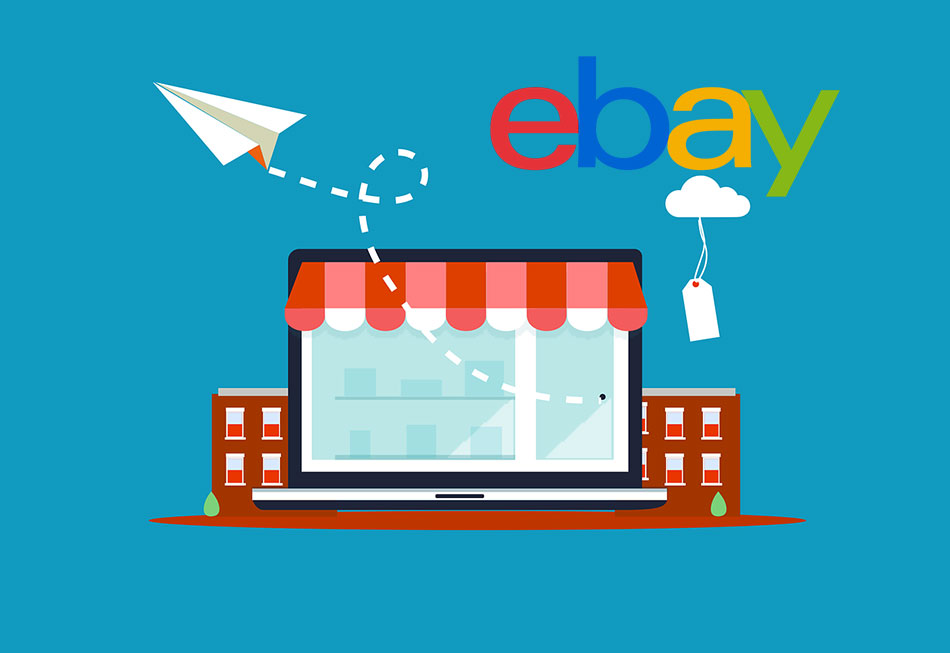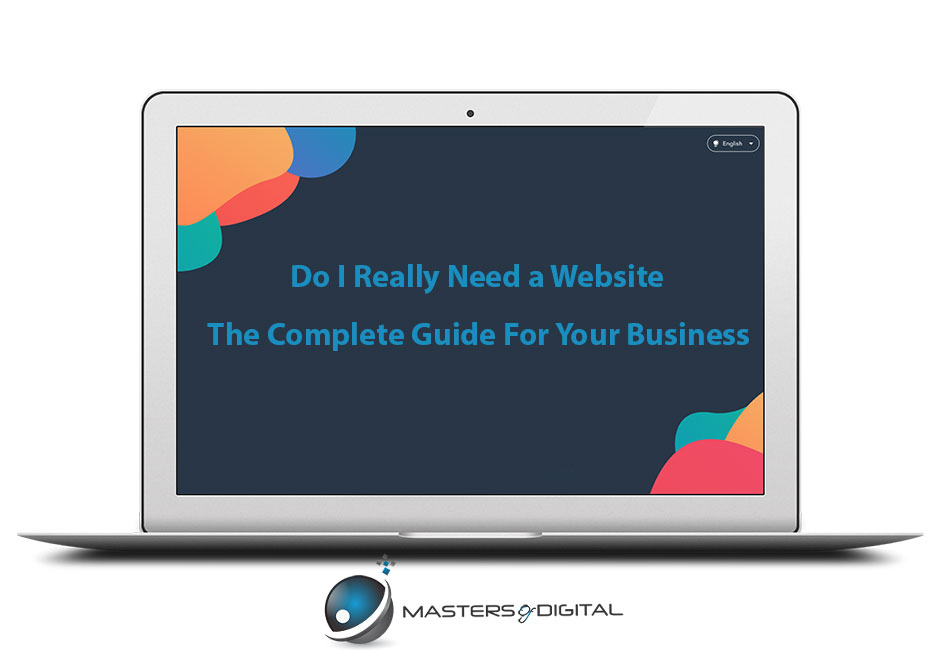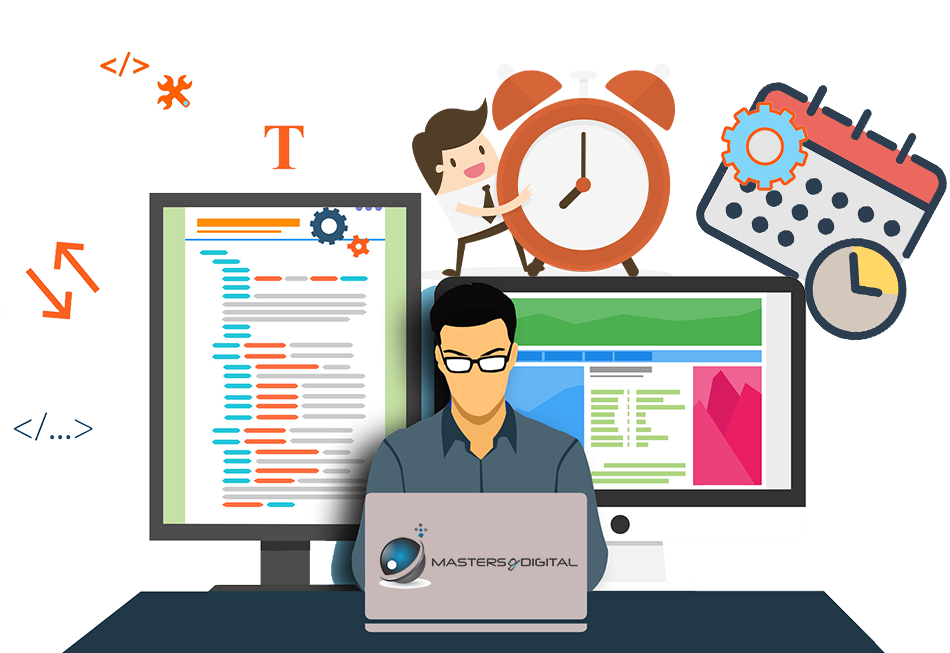
How Long Does It Take To Build A Website?
We all know the importance of having an online presence. A professional website plays a huge part in doing so. But building a great website is never that easy, and it takes hours and hours of constant development, design, and redesign. The skill, experience, and patience required are so high that a website agency is your best bet.
The better parts of this article will discuss different ways we use to make a website from scratch. Then, we’ll explore the options in our packages and, for the first time, explain in detail how long our typical website development and design process takes. Hopefully, at the end of this article, you’ll be empowered to make the right decision to increase your online presence.
Contents:
- Website Building Technologies
- Website Builders
- CMS Platforms
- Self-Coding
- The Website Design and Development Process
- DIY vs Hiring a Web Design Agency
First Things First
Before consulting on website building and development services, it is crucial to get a couple of elements aligned first. Think of it as a blueprint that you’ll use to direct web developers and designers. These pointers will ultimately dictate how long it should take to get your website up and running. So, before consulting for website development services, ensure you have the following information about your proposed website.
Purpose
What is the main purpose of your website? Do you really need a website?
These are the few questions that should pop in mind. It would be best if you had a clear purpose for why you want to gain an online presence with a website. For example, do you want to create an e-commerce website to sell products and services directly to customers? Or maybe you need a website to educate readers and fill it with info-rich content and articles. Think through these questions and create a vision before seeking web design services.
Content
Website content entails any information included in the website, such as text, images, blog posts, and animations. You need to have an idea of the kind of content you’ll put on each page of the website. It is easy to set up your website with a structural content plan, but without it, the design process may take longer.
Functionality
For website builders to create a functional website, they’ll need to know how you want the website to operate. Do you need to rank on Google more? Do you want to provide the most accurate and honest information to potential customers? A simple website may be ideal if you offer only one service (i.e. photography). In contrast, a corporate website of a multinational company can have all the smoke and mirrors full of pop-ups and animations.
Knowing the functionality makes it easier for a web designer to see your vision. However, changing your mind in the middle of the design process is time-consuming and will cost you more, so it is imperial to nail the website brief the first time around.
Branding
Branding is everything your company entails, from the company name, logo, colours and fonts, tone of voice, etc.
how long does it take to build a website? If you have a brand already created, that would speed up the process, but if not, you can still decide on these before looking for a website designer. You can then integrate your brand all over the website by inserting the right images, fonts, colours, and other unique selling points (USPs).
Website Building Technologies
Understanding the technologies used to build websites is the key to estimating how long the process takes to fruition. During the internet boom, websites were generally built on thousands of lines of code, but the process became a bit easier with advanced software and technology, although coding still plays a major role.
That said, choosing a suitable website building technology depends on the background of the web designer. There are three main options to choose from, including:
- Website builders– suitable for newbies who need a simple website. No learning curve or coding know-how, very limited in functionality and expensive in the long run, and slow or non existent support.
- CMS Platforms– a bit more advanced software that requires a strong knowledge of CSS/HTML however very flexible in terms of functionality & customisability, easy maintenance and the most common choice.
- Self-coded websites– require staunch programming knowledge, as you’ll have to deal with the website coding from scratch, very expensive and may not function properly. Not easy or practically impossible.
how long does it take to build a website? The type of method chosen will determine a rough time estimate. Let’s have a rundown of each technology and see how long it typically takes to complete the building process from concept to live.
Website Builders
Average time to set up website: 6 hours
The easiest building method uses the intuitive all-in-one website building software, also known as SaaS. The platform gives users extended functionality and preset instruments to edit and customise your potential website, however keep in mind your website will not be able to grow as your business grows, and also the fees when using website builders quickly pile up, so it becomes expensive in the long run.
Online website builders are extremely easy to use and ideal for newbies. You can add an image, edit fonts, text without coding a single line. It is easy to come up with a multi-page website without being a coding guru. Simply drag and drop the elements into the template and click on “go live” or “publish” when done.
Sounds too good? Well, the technology used in website builders has already done a fair amount of coding, so all you need to do is copy and paste the content into it. This method is suitable for beginners thanks to the following features:
- Ease of use. The design process is easy, intuitive and as interactive as playing a simple game. You only need to register, pick a template, paste relevant content, and hit the publish button.
- All features readily available. When you get a purchased plan, you’ll find every feature needed to edit and customise your website plus hosting available. Some builders will even offer a free domain, saving you lots of time managing and hosting your domain.
- Pre-made templates. Typically, website builders have a wide selection of templates grouped in niches. If you want to open up an eCommerce site, for instance, you’ll find a range of templates in that section.
While online builders have pre-made templates, most folks feel the selection limits their freedom and does not give enough room for creativity. Also, since the backend is filled with code, you may not have optimal SEO performance, or a choice for that matter. Therefore, we do not recommend website builders if you’re a professional company and might need to leverage marketing and optimisation tools, or customise the website to your branding and need the website to grow/expand as your business does.

Above is a picture of WIX. a popular website builder.
CMS Platforms (Using WordPress With a Host)
Average time to set up website: 2-4 weeks
WordPress is one of the most popular CMS platforms, more advanced than other all-in-one website builders like Wix or Squarespace. It is typically a Content Management System (CMS) where you can set up, organise and post content. With a talented WordPress Developer, the sky is the limit in terms of customisability & functionality.
A WordPress site will require more time to set up than other builders, as it isn’t intuitive for people who have never used a content management system. But it is an excellent option if you plan to host a large amount of content, or a website. Here, you will have to purchase a domain name and web hosting service elsewhere then link them together. A website host is basically where you store everything about your website, which then communicates with a cms system.
The process of integrating your host and WordPress usually takes a few days to connect. We offer WordPress building services to handle everything about WordPress, so you don’t have to use HTML or CSS. Our team of developers know WordPress like the back of their palm, so you’re sure to be in good hands.
The good thing about WordPress is adding endless plugins that you can use to customise your website, and the sheer amount of possibilities this platform opens when building a website . Plus, it has many SEO features to help your page rank in Google and other search engines, so it is the optimal choice if you’re planning on marketing your business.
A content management system (CMS) is computer software used to manage the creation and modification of digital content – Wikipedia
Self-coding (a.k.a Using a Web Design Agency)
Average time to set up website: 12 to 24 weeks
Another alternative to using website builders to create your website is to hire a professional website development agency. An agency will take your website building process, self-coding and build everything from scratch. While it looks stressful, this is the best way to make a solid website that’ll last years.
Web design agencies such as Masters of Digital are experienced in developing websites for various platforms. They make complex websites with more than 200 pages with custom designs and optimisation. Usually, using an agency will take more time as it involves various processes such as feature implementation, debugging, stereotyping, testing, etc. Plus, you’ll have to go through multiple drafts and approve along the way.
Using a web design agency allows you to create a website from scratch without the stress of coding or adding content. The agency has a team ready to make necessary parts of the website, integrate components, and go live. In addition, you get free advice and consultation from experienced website designers in Australia, who will help you along the way make the right decisions for your business website.
The Website Design And Development Process
As mentioned, building a website from scratch takes a couple of weeks or months before going live. Depending on your objectives, the time taken to develop each process will vary. At Masters of Digital, we follow a structural approach when building our clients’ websites. We typically allow 3 round of revisions to make sure everything is correct and customers are happy with how everything presents.
Let’s take a look at each step and how long you should wait before proceeding to the next stage:
Concept and planning
The first stage of the project is the determinant for success. First, developers must comprehend the client’s needs, goals, and niche audience. Here, the client needs to answer questions regarding their visions, critical design elements, unique value propositions, preferences, and more.
We can discuss the details over the phone, via email, through a one-on-one video call, or meet face-to-face with our team. Once we identify these details, the team comes up with the first wireframes and structure for the main pages.
This phase is the most demanding in terms of communication, and we’ll need the client to be available from time to time. The speed of response will determine how long the whole design process takes. We should have set up enough documentation to take us through the design process at the end of the planning process. Generally, this phase takes a couple of days with extra revisions, depending on response time.
Content Creation
The second stage of the design process is where our team takes the most time. Even if it’s a web redesign or starting from scratch, content creation takes a lot of time as it demands creativity for every website.
Everything is focused on your style and preferences here, so if you’re not decided on things like colour or layout, this phase might take some time. A successful website has appealing and interactive content such as texts, video, audio, and other plugins. Larger projects take even more time as content needs to be filled on each page.
The timeline for content creation varies greatly and depends on many factors. Generally, it can take 80 hours or more to create a standard website with 5 pages. If your website has advanced functions such as checkout sections payment methods, it may take significantly longer to develop it.
UI/UX Design
Next, we gather our team of website designers to make your website visually appealing and with a user-friendly interface. Our designer integrates the information given by the client, wireframes, content from previous stages, and creativity to come up with a perfect presentation of the website.
The frame includes the homepage design, several pages, mobile views, etc. It also has the chosen colour pallets, fonts and design that matches its brand. Once we prepare the first draft, it is presented to the client and finished according to the feedback given.
Online presence is crucial, and businesses need to be wary of every stage of the process. It would be disastrous if you noticed a mistake that would have been corrected in the content creation stage during the web development stage. Multiple revisions from the UI/UX stage can extend the time by a week or so.
Web Development
Once the content is ready, we start front-end development. Still, there will be a significant backend development process if the site needs complex integrations and queries with third-party sites. Many plugins like Paypal checkout or VISA require complex HTML/CSS coding and security to ensure they’re working smoothly. This means most time will be spent on the backend developing these services.
Apart from backend coding, the process involves multiple cross-browser and platform testing, validation, and more coding. Everything here depends on the client and the scope of the project.
Web Development is the work involved in developing a website for the internet or an intranet (private network) – Wikipedia
Beta Testing and Modification
Once the website is fully functional, it goes through a final testing period known as beta testing. Again, our team sits together, and everyone must approve if the website meets the client’s designs and specifications. These tests are focused on the front end, and we also look through all codes and remove any errors.
One of the common issues we find at this stage includes slow loading pages, typos on content, non-loading elements, etc. Next, our team checks the website through various platforms, browsers, mobile devices, and pixel sizes to monitor its performance. Then a final approval is essential from all involved in the website design and development process before we can launch the website and go live.
Official Launch
Once we are satisfied with all the parameters at the beta testing, we now plan to launch the website. This can be an event for a day or two, depending on the complexity of the site.
Once the site is launched, we still give room for final touches, so you can always come back to us for a few tweaks here and there until everything looks and works perfectly. That’s it! These steps are our basic framework, which guides us in the website design and development process.
DIY Vs Hiring A Web Design Agency
Website building is crucial for any company looking to set up an online presence. You can decide to do it yourself or have a professional website design agency create your ideal website. But, which one is the best: DIY or the web agency way?
Revisions
When designing a website yourself, there is always doubt whether you have nailed it or not. A Website development agency not only allows you to choose your concept. It also gives room for revisions until you’re satisfied that the website is running accordingly.
No templates; Everything is Custom
A website builder is an easy alternative for newbies because of its selection of templates where clients can add content and publish the website. The downside, however, remains to be its limited flexibility and lack of creativity (imagine all the newbies accessing the same template). On the other hand, website agencies help you create the website from scratch, customizing everything to a tee.
Create Complex Websites
While website builders have templates for just about any niche, they may not have the plugins needed to develop a proper eCommerce site or any website with complex plugins and features. And that’s where website builders come in! A website development agency does all the coding and opens up the opportunity to add plugins and widgets required for huge websites. So even if your website is as big as 100+ pages, a web developer will get the job done.
The Takeaway
So, how long does it take to build a website? It depends.
Since there are hardly any projects which are the same, the website building process will always vary. Some companies spend months going back and forth with developers to run a website, while startups may take a few weeks. It all depends on your goals, size, and complexity of the project.
It is important to pin a timeframe of all the stages to ensure no detail is left behind. In addition, taking note of each step reduces the number of revisions you might present. For example, it would be so disappointing if you only came to check progress at the A/B testing stage.
All in all, a great website takes time, and no matter how fast agencies promise to deliver, bottlenecks are almost always inevitable. So prepare all your project requirements and content before consulting the agency to ease the process. It will save you lots of time and hidden costs at times.
If you’re looking to improve your current website or need a new website, don’t hesitate to contact the team at Masters of Digital. We are dedicated professionals based in Melbourne and Geelong, Australia. Contact us today for a free site audit or quote for website development.


